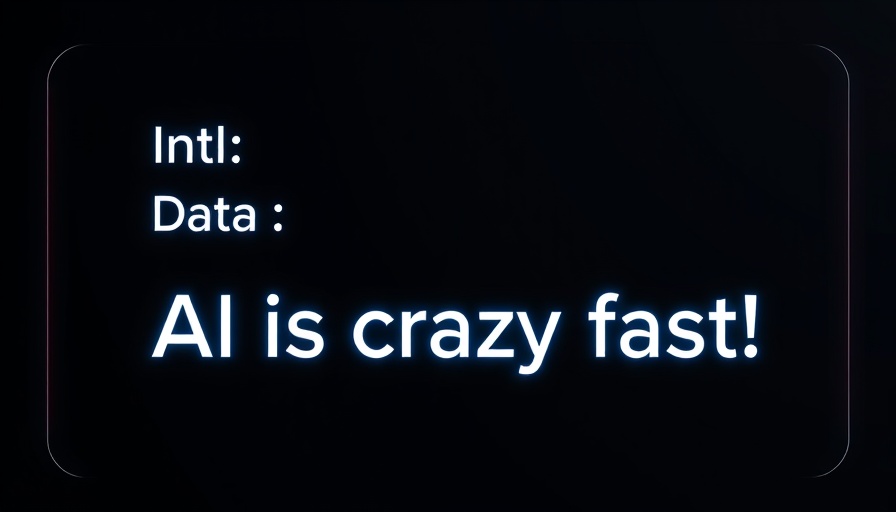
Decoding the Language of Artificial Intelligence
As large language models (LLMs) become integral to our daily lives, understanding their foundational elements is crucial. At the core of these systems are tokens, the units of language that help these models interpret and generate text. Each token—whether a word, part of a word, or even punctuation—plays a significant role in how an LLM communicates. The implications of this linguistic foundation extend far beyond mere word choice; they touch upon societal values, biases, and norms that these technologies inadvertently propagate.
The Societal Impact of AI Tokens
Tokens are not just technical constructs; they reflect the broader societal context within which AI operates. The language used in LLMs can inadvertently reinforce cultural biases if training datasets are not carefully curated. For instance, if a model primarily learns from texts that reflect a narrow worldview, its output can skew negative stereotypes or amplify existing inequalities. When policymakers and tech experts understand this, they can make informed decisions about how to develop and deploy these systems responsibly.
Tokens as Mirrors of Culture
Consider how AI technologies are influencing education and workforce dynamics. As AI systems become more pervasive, understanding the language within these systems can empower educators and employers to foster inclusive environments. By analyzing the tokens and outputs of LLMs, one can identify areas where the technology may be perpetuating social issues—be it through exclusionary language or inadequate representation. Addressing these aspects is imperative for both moral and professional integrity in tech development.
Future Predictions: The Ethical Landscape of AI
The evolution of LLMs raises pressing questions about ethical implications in AI. The advent of more sophisticated models comes with a responsibility for transparency. There is a growing demand for AI governance frameworks that can mitigate risks associated with token misuse, like job automation that displaces workers without adequate support systems in place. As these discussions gain traction, understanding the nuances of AI tokenization becomes essential for ensuring a more equitable future.
Actionable Insights for Policymakers and Tech Experts
For sociologists and policymakers, diving deeper into the grammar of AI could serve as a step toward societal change. Advocating for inclusive training datasets and ethical guidelines can ensure the beneficial use of AI technologies. As stakeholders in education and industry move towards integrating AI solutions, they must critically assess the societal changes that come with these tools, ultimately steering their development to align with values of equity and inclusiveness.
Understanding the 'secret language' of LLMs is not merely an academic curiosity; it is a prerequisite for leveraging AI for social good. By embracing the complexities of tokenization, we can work collaboratively towards a future where technology enhances, rather than undermines, social cohesion.
 Add Row
Add Row  Add
Add 




 Add Row
Add Row  Add
Add 



Write A Comment